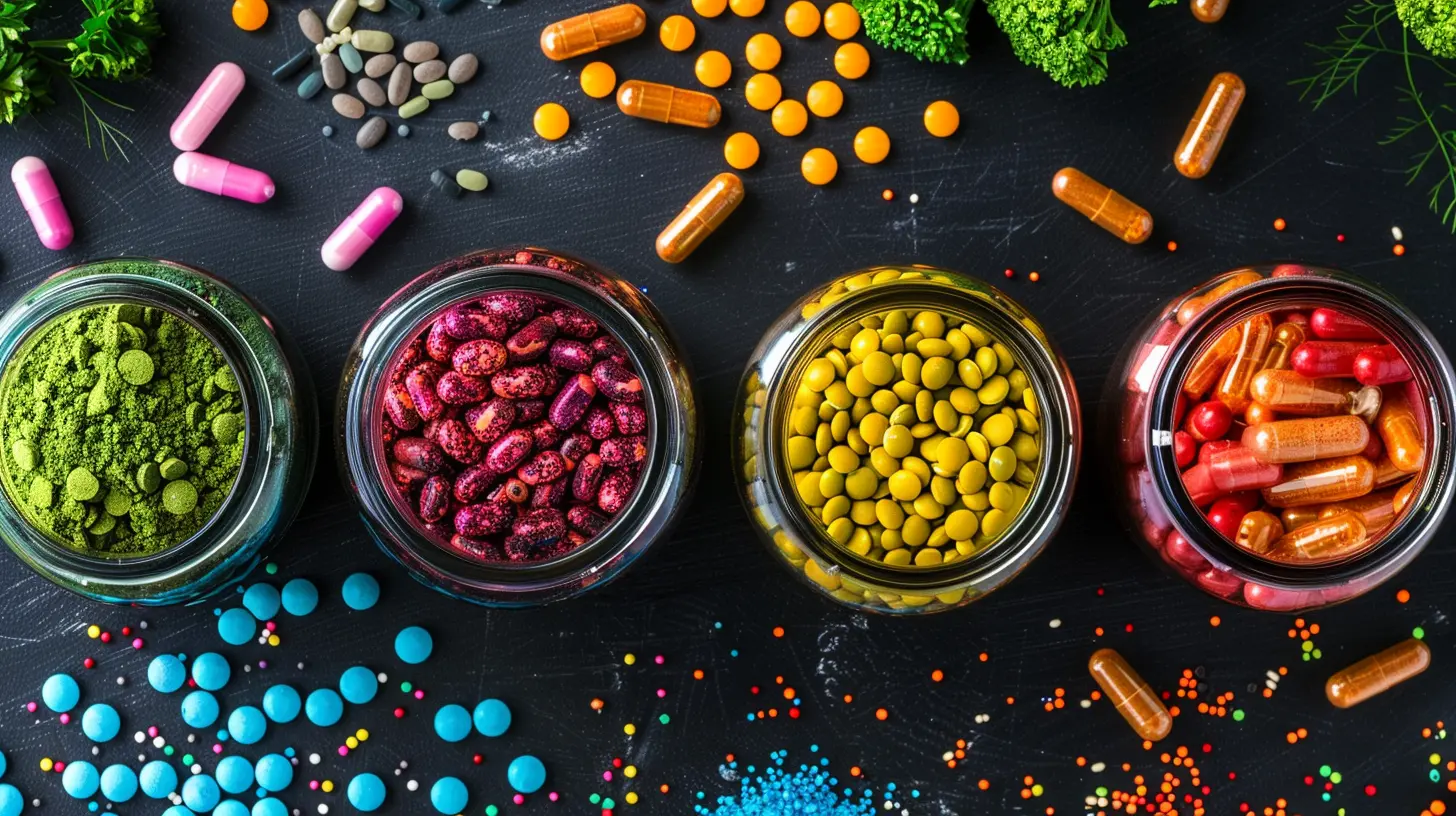Beyond Probiotics: Lesser-Known Ways To Support Your Gut Health
15 June 2025
When we think about gut health, probiotics often steal the spotlight. We hear about yogurt, fermented foods, and even probiotic supplements everywhere. But what if I told you there's more to gut health than just loading up on probiotics? While they do play a crucial role, your gut is a complex ecosystem that needs a variety of factors to function at its best.
So, if you're looking to take your gut health to the next level, let's dive into some of the lesser-known yet equally effective ways to support your digestive system. 
1. Feed Your Gut with Prebiotics
Before we even talk about probiotics, let's talk about their food—prebiotics. These are the types of fibers that fuel the good bacteria already in your gut. Without them, probiotics wouldn’t be able to thrive and do their job properly.Best Sources of Prebiotics
- Garlic and onions – Not only do they add flavor to your meals, but they also support gut bacteria.- Leeks and asparagus – These veggies provide inulin, a type of prebiotic fiber.
- Bananas (especially unripe ones) – Green bananas contain resistant starch, which feeds good bacteria.
- Oats – Rich in beta-glucan, which promotes gut-friendly bacteria.
By ensuring you’re eating enough prebiotic-rich foods, you're giving your gut bacteria the best chance to flourish. 
2. Stay Hydrated—Water Matters More Than You Think
It's easy to overlook, but proper hydration plays a huge role in gut health. Water helps move things along in your digestive tract, preventing constipation and keeping things running smoothly.But hydration isn't just about drinking water. The type of water you consume matters, too. Filtered water, free from chlorine and other chemicals, is best since certain chemicals in tap water may damage your gut microbiome over time.
How to Optimize Hydration for Gut Health
- Drink at least 8 glasses of water daily (more if you're active).- Limit alcohol and caffeine, as they can dehydrate you.
- Include hydrating foods like cucumbers, watermelon, and celery.

3. Ditch Artificial Sweeteners and Processed Foods
Are you reaching for sugar-free alternatives, thinking they’re "healthier"? You might want to rethink that. Artificial sweeteners like aspartame, sucralose, and saccharin have been shown to negatively impact gut bacteria, potentially leading to imbalances that could contribute to digestive issues, bloating, and even metabolic problems.Similarly, processed foods—packed with refined sugars, additives, and preservatives—can disrupt the gut microbiome, feeding bad bacteria instead of the good ones.
Better Alternatives
- Choose natural sweeteners like honey or maple syrup in moderation.- Opt for whole foods over pre-packaged, processed options.
Your gut will thank you for making the switch! 
4. Manage Stress – Your Gut Feels It Too
Ever had “butterflies” in your stomach when you're nervous? That’s because your gut and brain are deeply connected. Chronic stress can throw your gut microbiome out of balance, leading to digestive issues, bloating, and even inflammation.Simple Ways to Reduce Stress for Gut Health
- Practice deep breathing – Just 5 minutes a day can calm your nervous system.- Exercise regularly – Even a 30-minute walk can help lower stress levels.
- Try meditation or yoga – Great for mental and gut health.
- Get enough sleep – Poor sleep can negatively impact digestion and gut bacteria.
Taking care of stress isn’t just good for your mind—it directly benefits your gut, too!
5. Eat More Polyphenol-Rich Foods
Polyphenols are powerful plant compounds that help feed beneficial gut bacteria while offering antioxidant and anti-inflammatory benefits. They're found in a variety of colorful plant foods.Best Polyphenol-Rich Foods for Gut Health
- Dark chocolate (70% or higher cocoa)- Berries (blueberries, raspberries, strawberries)
- Green tea and black tea
- Olive oil
- Nuts like walnuts, almonds, and pecans
By adding more polyphenol-rich foods to your diet, you’re giving your gut microbes the support they need to thrive.
6. Get Moving—Exercise Boosts Gut Diversity
Turns out, working out isn’t just great for fitness—it’s amazing for your gut, too! Studies suggest that physically active people tend to have a more diverse gut microbiome, which is linked to better digestion and overall health.How Exercise Helps Your Gut
- Increases gut bacteria diversity, which is a key marker of gut health.- Reduces gut inflammation and boosts good bacteria.
- Improves digestion by keeping things moving through your system.
Best Types of Exercise for Gut Health
- Walking – Low-impact and great for digestion.- Yoga – Certain poses can relieve bloating and stimulate digestion.
- Strength training – Helps reduce gut-related inflammation.
The key is consistency—just moving for 30 minutes a day can make a huge difference!
7. Don’t Ignore the Power of Fermented Drinks
You’ve heard about kombucha, but what about some of the less trendy fermented drinks that might do wonders for your gut?Top Gut-Boosting Fermented Drinks
- Kefir – A probiotic-rich dairy or water-based drink.- Kvass – A fermented beet-based drink loaded with gut-friendly bacteria.
- Lassi – A traditional Indian probiotic yogurt drink.
These drinks don’t just introduce probiotics into your system; they also contain enzymes and beneficial acids that aid digestion.
8. Try Intermittent Fasting for Gut Reset
Intermittent fasting (IF) isn’t just for weight loss—it also benefits your gut. Fasting gives your gut time to reset, repair, and regulate the balance of good and bad bacteria.How Intermittent Fasting Supports Gut Health
- Promotes gut bacteria diversity, allowing good bacteria to flourish.- Reduces gut inflammation and helps heal the gut lining.
- Improves digestion and bowel movements.
If you’re new to fasting, the 16/8 method (fast for 16 hours, eat within an 8-hour window) is a great place to start.
9. Prioritize Sleep – Your Gut Repairs at Night
Ever noticed that when you don’t sleep well, your digestion feels off? That’s because your gut microbiome follows a natural rhythm, and poor sleep disrupts this balance.How to Improve Sleep for Gut Health
- Stick to a consistent sleep schedule.- Avoid screens at least 1 hour before bed.
- Limit late-night snacking, especially processed foods.
Prioritizing rest gives your gut the downtime it needs to heal and maintain balance.
Conclusion
Beyond probiotics, there are plenty of powerful yet underrated ways to take care of your gut. From embracing prebiotics and polyphenols to managing stress and getting better sleep, your gut health is influenced by many factors.So, instead of just grabbing a probiotic supplement, try incorporating some of these strategies into your daily routine. Your gut—and your whole body—will thank you!
all images in this post were generated using AI tools
Category:
Gut HealthAuthor:

Jackson Mahoney
Discussion
rate this article
2 comments
Harvey McKeever
Great article! It's refreshing to explore beyond probiotics for gut health. Remember, small lifestyle changes, like enjoying a balanced diet, staying hydrated, and adding some movement to your day, can make a big difference. Cheers to a happy gut!
June 19, 2025 at 3:40 AM

Jackson Mahoney
Thank you for your insightful comment! I couldn't agree more—small lifestyle changes are key to supporting gut health. Cheers!
Selena McCarthy
Loved this article! It’s a refreshing reminder that gut health goes beyond just probiotics. I’m excited to try out some of the lesser-known tips, like incorporating more fermented foods and staying hydrated. Here’s to a happy gut and a joyful life—small changes can make such a difference!
June 15, 2025 at 4:02 PM

Jackson Mahoney
Thank you for your kind words! I'm glad you found the tips helpful. Here's to a happier gut and all the benefits it brings!


